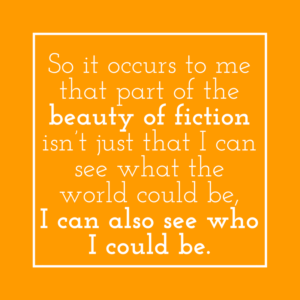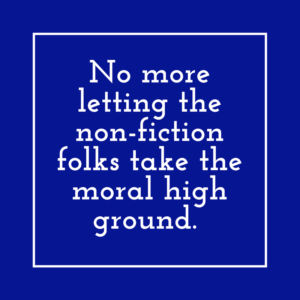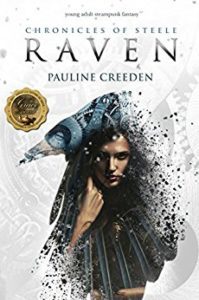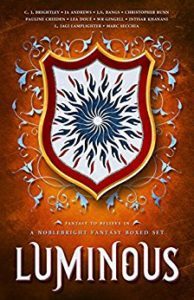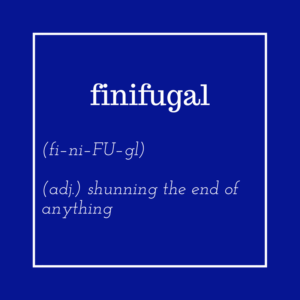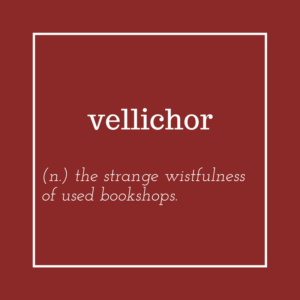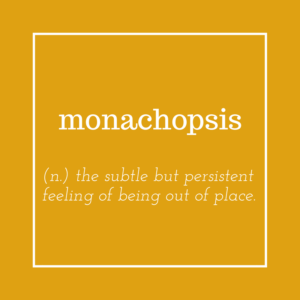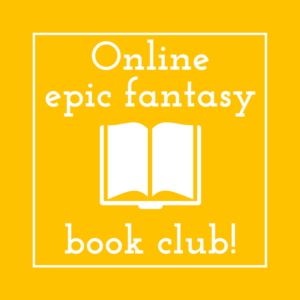J.A. Andrews's Blog, page 5
November 17, 2017
The beauty of reading fiction
Last time I shared with you guys some studies that talked about why reading fiction is so good at developing empathy and overall becoming better human beings, and as usual you guys sent the best responses.
Here are two extra things you brilliant people pointed out:
It makes sense in a way. Maybe it’s similar to the fact that children often don’t do what their parents SAY, but what their parents DO (so parents have to lead by example instead of just telling their children what’s right). We can read dozens of books telling us how to be, but in the end, we copy the people around us and the people we read about.
Another point worth mentioning is that while nonfiction does a good job of teaching us a lot of things, fiction includes emotions as well as facts and it has been shown (and you probably know it from personal experience as well) that emotions help us remember things, especially when it comes to long term memory.
-Kerstin L.
And she’s of course exactly right.
Non-fiction is the story of what was, and we can learn from that. But Fiction is the story of what CAN, and in many cases, WILL be. Most of the worlds inventions and renovation of older ideas came from fiction.
-Sean K.
I love the idea that fiction is what can be.
Those two ideas sort of merge together in my mind too, pointing to the fact that it’s most often in fiction (although biographies can do this too) that I meet someone who I want to be.
Someone who is brave in a way I am timid.
Someone who has compassion for something I’ve never understood enough to relate to.
Someone who embodies something I would like to be.
So it occurs to me that part of the beauty of fiction isn’t just that I can see what the world could be, I can also see who I could be.
On the topic of bravery, I remember when I was in my early teens, reading Lord of the Rings for the first time. When Eowyn pulled off her helmet and called out the huge, fearsome Witch King, I remember Young Me wanting to jump up and cheer. I remember thinking, “That is how brave I want to be!”
Have you ever met a character in a book who made you want to change who you were to be more like them? Or, I suppose, less like them?
I’d love to hear if you have.
The post The beauty of reading fiction appeared first on JA Andrews.
Fiction vs. Non-fiction
There’s a general idea in the world that reading is good for you.
Pretty much everyone agrees it’s good for kids to learn to read, that time kids spend reading is time well-spent.
And for adults, it’s the same.
Reading a book generally ranks higher on the Good For You Scale than, say, binge watching Stranger Things 2. (Which may not be true because Stranger Things was awesome.)
If we’re going to get more pompous about our Value of Reading Scale, the world also holds general consensus that non-fiction books are a little bit better for you than fiction.
I mean, what are people going to be more impressed with?
1) You, brow furrowed, nodding along thoughtfully as you read Stephen Hawkin’s A Brief History of Time.
or
2) You, giggling away at We Have Lost The Coffee by Paul Matthews.
BUT, the world has LIED to us, people.
Lied.
It turns out that fiction is better than non-fiction at actually changing who we are.
Non-fiction, unsurprisingly, is excellent at teaching us things.
Fiction, on the other hand, turns out to be good for you in a different way. It actually helps you develop the things that make us all human, things like developing empathy and connecting with ideas larger than ourselves.
Kieth Oatley, in an article titled Changing our Minds…by Reading Fiction, says this:
“For more than two thousand years people have insisted that reading fiction is good for you. Aristotle claimed that poetry—he meant the epics…which we would now call fiction—is a more serious business than history. History, he argued, tells us only what has happened, whereas fiction tells us what can happen, which can stretch our moral imaginations and give us insights into ourselves and other people.”
There are several studies mentioned in that article, all showing that reading fiction is really good at helping us grow into better human beings.
This is fabulous.
No more hiding our guilty pleasure novels on public transportation.
If someone gives you the eyebrow for reading Harry Potter, you can point out to them that you’re expanding your emotional universe. And that they, being judgy and mean, really need to read more fiction.
No more letting the non-fiction folks take the moral high ground.
Now you can let that pretentious non-fiction reader at work know that probably they’re an emotional wasteland inside.
And then hand them a copy of Pride and Prejudice.
(Hmmm, come to think of it that response might not exactly win you the moral high ground either…but it’s a start.)
Anyway, just thought I’d point out that, as a fiction author myself, I am making the world a better, more empathetic place, one page at a time.
And you, as a fiction reader, are catapulting humanity into a better version of itself.
Well done, you.

PS – In the spirit of this article, I should mail a copy of my novels to every single world leader. (Never mind the pesky language barrier that would run up against…)
Hello more international empathy, goodbye looming World War III!
#fictionsavestheworld
The post Fiction vs. Non-fiction appeared first on JA Andrews.
October 5, 2017
Meet Meg Cowley and her awesome new Immersive Fantasy book
Happy beginning of October!
Today I want to introduce you to Meg Cowley.
I first ran across Meg because she published beautiful coloring books, and since I had attempted to make my own coloring book, I was in awe of her drawing skills.
(Meg’s are gorgeously hand-drawn. Mine are computer generated mandalas.)
I tried to befriend her at once in the hopes that her artistic nature was contagious.

Then I discovered she also writes fantasy novels. So I could sweep all that chatter about “art” under the rug, and we could become friends based on something we actually had in common.
She has a lot of books worth checking out, both published and in the works, but she’s just launched a really interesting book that I thought I’d share with you all.
Meet the Book:
Her latest novel, Magic Awakened, is a retelling of the legend of Morgana Le Fey from Camelot. Here in book one, Morgana is a young woman just orphaned and brought to King Uther’s court as his ward.
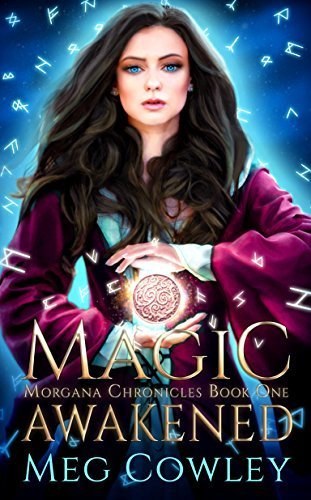
Torn from her home after her father’s death, a young Morgana is thrust into life as a ward of the King of Albion, the respected and ruthless Uther Pendragon.
As court life in Camelot overwhelms her, Morgana fights to regain her independence and find her place, but where is that? Her father is dead, she has no home, and she cannot think of anything worse than seeing the insufferably arrogant Prince Arthur every day.
Magic may be the answer, for it may give her the freedom to make her own choices and find a new belonging. However, as Morgana struggles to untangle the truth about magic, she finds herself drowning in questions with no answers.
Can Morgana find the truth, and the key to her powers?
Morgana Le Fay is a feared legend, but the truth is a different matter.
The super cool thing about Magic Awakened is that it’s more than just a book.
It’s a magic* book!
“Step into Camelot itself in this Immersive Fantasy™ novel, that utilises revolutionary Augmented Reality to bring the world to life! Enjoy the added features of this special edition, which allow you to enjoy bonus content right from your reading device. See bonus character artwork. Listen to a siren’s song. Experience behind the scenes like never before, thanks to Augmented Reality technology. Immersive Fantasy™; bringing fantasy worlds to life.”
*Yes, “magic” may mean “scientifically advanced”, but this is a fantasy newsletter, not a science fiction one, so let’s run with “magic”, ok?

Grab your copy of Magic Awakened here!
Meet the Author:

To get to know Meg a little, I convinced her to play Two Truths and a Lie with us.
The game is simple. (And we get the fun of saying the word “truths”, which I can’t help but pronounce, “troooooothz”.)
Meg has given us three facts about herself. Two of them are true, one is a lie.
You get to guess which is the Big Fat Lie.
Fact 1: Meg has a penchant for near death experiences. Her least scary near death experience is almost being splatted by a hundred foot tall alpine tree.
Fact 2: Her secret nickname is Pudding Chop.
Fact 3: It’s not just her characters who are archers, Meg shoots a recurve bow in real life.
Leave a comment below to vote for which of these facts you think is the Big Fat Lie.
One person with the correct guess will win a free ebook from Meg! They’ll receive The Tainted Crown, which is the first book in her epic fantasy series.
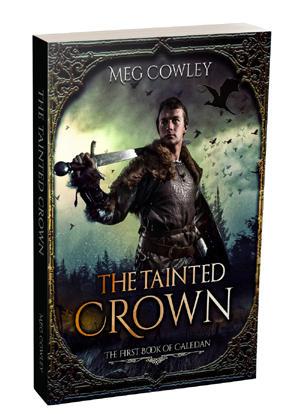
Good luck!
I’ll leave the game open until October 12th, and announce the winner next Friday.
Don’t forget to grab a copy of Meg Cowley’s new novel Magic Awakened here.
The post Meet Meg Cowley and her awesome new Immersive Fantasy book appeared first on JA Andrews.
September 30, 2017
Author Interview with Pauline Creeden and a Giveaway!
Today I’m really excited to have Pauline Creeden on the blog for an interview. She’s a fellow author in the Noblebright Box Set Luminous with her book, Raven (which has a gorgeous cover!)
***Also, at the bottom of this post check out the great giveaway we’re doing! You can win an awesome Lord of the Rings tote bag and a Harry Potter journal!
Now on to our interview!
Janice: Welcome, Pauline! What does Noblebright mean to you?
Pauline: Hope. It doesn’t mean that bad things don’t happen, because they do, but Noblebright reminds us that there is hope and light at the end of the tunnel.
Janice: How do you portray the Noblebright ideals in your work in general and the Luminous selection in particular?
Pauline: My characters go through bad times and have tough choices to make. They don’t compromise their morals in order to get ahead. Instead they believe that the right outcome can happen because they don’t compromise. Even when things seem hopeless, they dare to hope in spite of it. Determination is a greater asset than natural talent, and I tried to put that into my work for this project as well.
Janice: What is your favorite kind of character?
Pauline: I love the uplifting character, like Samwise Gamgee in The Lord of the Rings Trilogy. No matter what he was going through, he was there to keep Frodo on track. He’s actually one of my favourite characters ever.
Janice: I really like Sam too, for the same reason. Do you have plans for a sequel to your novel included in Luminous?
Yes! I have several stories in my head for the Chronicles of Steele world, now to just get them out of my head and onto paper…
Janice: Lol! That is the problem, isn’t it? Especially for a slow writer like me. Are you a speed writer, or a turtle writer?
Pauline: I’m a procrastinator. I procrastinate and then write a bunch of words…then procrastinate again. So it seems to take me a long time to get a novel out, but if I could get rid of the procrastination in me, it wouldn’t!
Janice: Procrastinating is a big problem for me too. What tends to affect your writing the most?
Pauline: Time. I’m a mom, wife, and have many, many animals to take care of. It’s easy to put off the writing to later and say I don’t have time for it now.
Janice. Yes it is! So what is your perfect writing day?
Pauline: When it rains. On days it rains I can’t get distracted by my day job – which is horse trainer/riding instructor. So my perfect writing days are when it’s rainy or snowy outside.
Janice: I think rainy days are conducive to writing too. Now for the Important Questions: Tea or coffee?
Pauline: I love Iced Tea, but haven’t had it in a very long time, because a year ago, my husband and I gave up caffeine. It was crazy- we both thought we needed it so much, but turns out that we sleep better and are less tired without it. Funny how that works!
Janice: Wow! Giving up caffeine! That takes a lot of will-power! Last question: Music or no music?
Pauline: No music – Provided I’m working at home – if I’m at the library or Panera, I use music to help me get in the zone, but only 2-3 songs on repeat so I don’t get distracted by the music, either.
Janice: Thanks, Pauline!
Discover Pauline Creeden’s writing, and nine more noblebright reads in Luminous… You can also check out the full line-up of Luminous author interviews at http://noblebright.org.
And don’t forget to scroll all the way down to the giveaway!
Amazon | B&N | Kobo | iTunes | Smashwords | Google Play
Dare to step into lands of myths, magic, and monsters, because there is light to be found in even the darkest of places.
Now, ten fantasy authors have come together to offer this epic boxed set of noblebright fantasy! Don’t miss this fantastic opportunity to explore ten unique worlds, fall in love with gallant heroes and heroines, and discover the chinks in the darkness where the light shines through.
What is Noblebright fantasy?
Set apart by a sense of hope, noblebright fantasy includes at least one character who, although flawed, still deliberately pursues goodness. And that goodness has the power to make a difference. In a noblebright story, even villains are not without hope. Their redemption isn’t guaranteed, of course, but it is a possibility.
This boxed set includes:
The Lord of Dreams by C. J. Brightley
When a fairy king grants a human wish, there’s more at stake than dreams.
A Threat of Shadows by JA Andrews
Haunted by his past and surrounded by companions carrying their own dark secrets, Alaric grasps at one last chance to save his dying wife.
Heir of Iron by J.S. Bangs
Family secrets. Forbidden Love. An empire on the brink of collapse.
The Hawk and His Boy by Christopher Bunn
You can run as far as you can, but you can never escape the Dark.
Chronicles of Steele: Raven: The Complete Story by Pauline Creeden
Just when Raven tries to leave the life of a Reaper, she’s pulled right back in.
The Firethorn Crown by Lea Doué
After discovering a secret underground kingdom and a mysterious sorcerer-prince, Princess Lily must free herself and her sisters from a dangerous curse or face a lifetime of darkness.
Wolfskin by W.R. Gingell
Sometimes the little girl in the red hood doesn’t get eaten, and sometimes the wolf isn’t the most frightening thing in the forest…
Sunbolt by Intisar Khanani
A street thief with a dangerous secret, Hitomi finds herself betrayed to the dark mage who killed her father.
Rachel and the Many-Splendored Dreamland by L. Jagi Lamplighter
Magic school can be a lot more dangerous—and wondrous—than expected.
The Pygmy Dragon by Marc Secchia
Now, the courage of the smallest will be tested to the utmost. For Pip is the Pygmy Dragon, and this is her tale.
Amazon | B&N | Kobo | iTunes | Smashwords | Google Play
A LUMINOUS Giveaway!
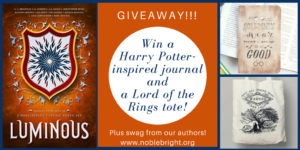 For a chance to win this awesome Lord of the Rings book tote, Harry Potter journal, plus swag from LUMINOUS authors, enter here:
For a chance to win this awesome Lord of the Rings book tote, Harry Potter journal, plus swag from LUMINOUS authors, enter here:
The post Author Interview with Pauline Creeden and a Giveaway! appeared first on JA Andrews.
September 28, 2017
The challenge that is Twinkle, Twinkle, Little Star
Happy September!
Maybe I should say, “Happy Just-Grabbing-on-to-the-Tail-End-of-September!”
It makes me feel like I should be sitting in a rocking chair knitting for all the times I say, “I have no idea where this month has gone!” (Note: if this is what my retirement is going to look like, it is NOT going to be exciting. First of all, rocking chairs put me to sleep, almost immediately. Secondly, if I could stay awake, I’m still the world’s slowest, most irregular knitter, so there’s absolutely no way a retirement could possibly be long enough for me to complete even a scarf.)
But, as usually, I have digressed. Today I’m talking about nothing at all Bookish. Instead, it’s all about me.
Here are some things you may or may not know about me: I’m 42 and I homeschool my kids, so I’m used to teaching things all the time.
This fall, though, I’ve decided to finally learn something. I’m learning to play the cello.
To anyone who has stopped by my house for the past…(mutters something that sounds like “three years”)….this would be a surprising thing to hear. Because it was, in fact, three years ago when I got a cello. And wouldn’t I have started learning it then?
Um, no.
I’ve always wanted to learn and my husband, knowing I’m not much in the “jump up and do it!” category, drove me to a music store (three years ago) and we picked out a gorgeous cello that we could rent for a few months to see how I like it.
In the first week I learned to play Twinkle, Twinkle, Little Star, and aside from the fact that it sounded a little like the twinkly stars were being strangled by vibrating strings, I was excited.
Let’s fast forward to this summer, shall we?
(Picture montage here of seasons changing and children growing…all centered around a beautiful cello sitting perfectly still in the corner of the living room.)
In July, we received a nice little letter from the music shop congratulating us on the fact that we had made so many rental payments, we had bought the cello.
It’s a bit embarrassing to realize you’ve made monthly payments on an instrument for so long that you’ve actually purchased the thing, and still, you can only play a version of Twinkle, Twinkle, Little Star that could never, possibly be used as a lullaby.
And I kept saying, “I want to learn!” But I just…somehow…never did. Instead I walked through my living room avoiding making eye contact with the instrument out of guilt.
So, when we moved to an actual city, full of things like music teachers, my husband called a cello teacher and set up an introduction. (Can we just take a moment to acknowledge that hidden in that sentence is the fact that my husband picked up the phone and called someone. Because he knows I’m not in the “jump up and do it!” category. That is love people. True love.)
Anyway, that incredibly long-winded and aside-filled intro is to say that I had my first cello lesson yesterday.
Guess what we worked on? Twinkle, Twinkle, Little Star.
But this time I’m confident I can learn it.
It’s humbling to remember that as a 42-year-old there are still so many things I don’t know.
For instance, the way I think my body should be positioned to play a cello is wrong. In a lot of ways. And so I’m gently reminded (over and over) to lift my elbow off the cello, or straighten my wrist, or stop poking that pinky knuckle up too high.
I’m trying to be patient with myself and remember that Twinkle was not perfected in a day.
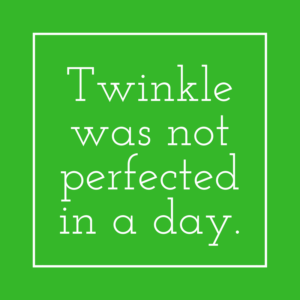
But as God is my witness, I will someday play it so beautifully that every baby within a block will immediately fall asleep.
And maybe every old woman knitting in a rocking chair.
Have you tried to learn something new as an adult? How did it go?
Please tell me I’m not the only one who wants to learn things, but puts them off forever.
The post The challenge that is Twinkle, Twinkle, Little Star appeared first on JA Andrews.
September 22, 2017
Shakespeare’s Contributions
I’m on a word kick lately, as you might have noticed.
A week or so ago, Christine commented on my website that Shakespeare was a pro at making up words. Turns out that many common words today were first found in the Bard’s work. And by many, I mean 1700 words. (There is disagreement on whether he actually coined all of them, but I think we can all agree that the guy certainly made them famous.)
And some of these words are really common. Like “bedroom.”
Without Shakespeare, my mothering might involve dramatic statements like,
“You will not do a single fun thing until you clean your bedchamber!”
And “bedchamber” makes me think of chamber pots, which I’m not interested in having around my home. So I’m glad “bedroom” is a thing.
But, I also found several words that I wish we could bring back the word Shakespeare got it from.
Gloomy
For instance, he’s credited with coining the word “gloomy.” (“Forced in the ruthless, vast, and gloomy woods?” – Titus Andronicus)
Gloomy is a great word.
Gloomy sky. Gloomy movie. Gloomy kid who didn’t clean his room.
But, Shakespeare got the adjective “gloomy” from the verb “to gloom”

to gloom (verb)
– to appear or become dark, dim, or somber, sad, dismal, or dejected; frown.
– to fill with gloom; make gloomy or sad; sadden, to make dark or somber.
I want this word to come back. There are things that gloom me.
-98% of the news
-Shakespeare’s tragedies
-Finding out the M&M’s are all eaten
These things happen, and I am gloomed.
Hurry
Another word some attribute to Shakespeare is “hurry.” (“Lives, honors, lands, and all hurry to loss.” – Henry VI Part 1)
We’re all familiar with “hurry”. We hurry everywhere. Heck, we even hurry through our resting times.
Most likely, the word was derived from the much less common verb “harry”.

harry (verb)
– to harass, annoy, or prove a nuisance to by or as if by repeated attacks; worry:
But when I’m running late, I’m not so much hurried, as harried.
I’m driving down the road, late for an appointment and the other drivers are harassing me with their own agendas—like wanting to get where they’re going—, and the speed limit is annoying, and I’m repeatedly attacked by worry.
Yes, “harried” sums it up.
That’s it, I’m bringing all these words back.
“Children, yes, I’m harrying you again. But if you don’t clean your bedchamber, I will gloom you.”
I think it’s going to catch on.
(Links to lists of Shakespeare words here and here.)
The post Shakespeare’s Contributions appeared first on JA Andrews.
September 16, 2017
Words for Book Lovers
In keeping with the theme of new vocabulary that started last week with words John Koenig had made up to describe emotions people have, I’ve come across some unusual words just for book lovers. Here are my two favorites from a list compiled by Oxford Dictionary:
1. hamartia
Perhaps one of the most gut-wrenching moments in a reading experience is a beloved character’s downfall. Hamartia refers specifically to a fatal flaw that leads to the downfall of a tragic hero or heroine. Hamartia is dominantly used in Aristotle’s Poetics to describe the destruction of heroes due to ignorance.
Some instances of hamartia are so serious that readers may engage in finifugal, which is shunning the end (of anything). Conveniently forgetting the ending of a book that dissatisfied you is a reader’s main coping mechanism when disappointed.
Confession: The real reason I picked this one is for finifugal. This is what I’m going to blame in the future for why I can never remember the endings of books or movies. I’ll pretend it’s a coping mechanism, not just because I have a defective memory.
I remember the endings of books and movies I really loved. But all those mediocre ones? Especially action-packed ones that aren’t going to win any awards for depth of character? I never remember those endings.
Which I suppose makes rewatching them more interesting than it might otherwise be.
Of course, how good is it really to have the ability to watch a mediocre movie more than once? The answer is not very good.
I’m not counting finifugal under one of my superpowers.
2. scripturient
A scripturient is simply someone who has a passion for writing…And even more interestingly, scripturients tend to get their work done in scriptoriums, also known as a room set apart for writing (often found in monasteries where manuscripts were copied). Way cooler than a personal office!
Yes. It is way cooler than a personal office. And infinitely cooler than sitting at the kitchen table. I’m declaring my dining room my scriptorium.
Now, if you’ll excuse me, my scriptorium is about to be invaded by a horde of miniature barbarians expecting breakfast.
The post Words for Book Lovers appeared first on JA Andrews.
September 8, 2017
Did you know it’s completely legit to make up new words?
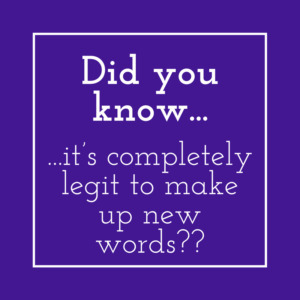
Making up words is fun, but most of the ones I make up aren’t good words. They’re usually just weird noises while I’m trying to describe things to my children. Like “Hold the flusher down until the toilet glugurgles.”
But, I’ve recently come across John Koenig who’s creating a multimedia Dictionary of Obscure Sorrows. As he describes it, “Each original definition aims to fill a hole in the language—to give a name to emotions we all might experience but don’t yet have a word for.” And unlike me, he doesn’t just make stuff up willy-nilly. “Each word actually means something etymologically, having been built from one of a dozen languages or renovated jargon,” Koenig says.
And some of his words are great.
So I thought over the next month or so, I’d share my favorites.
An obvious good one is:
Vellichor
(n.) the strange wistfulness of used bookshops.
Because that is a real thing.
Used clothing stores don’t feel wistful. Musty maybe, but not wistful.
Pawn shops don’t feel wistful. Sad, but the sadness is tinged with a “I might get tetanus if I touch that” sort of feeling.
The wistfulness is only found in used bookstores.
This second word is one I’m particularly susceptible to at the moment. In the last month we moved to a new city and although we are settling in — at least I’ve stopped getting dizzy during the Kitchen Waltz where I spin around opening cabinet after cabinet before finding the thing I needed — it still doesn’t feel like home. It’s starting to, just a bit around the edges, but I still felt a strong connection to the next word.
monachopsis
(n.) the subtle but persistent feeling of being out of place.
And if I’m honest, it doesn’t take moving to a new city to feel this one. There are just times when that “out of place” feeling can’t quite be shaken.
What do you think? Did John Koenig make up some good words?
The post Did you know it’s completely legit to make up new words? appeared first on JA Andrews.
August 16, 2017
New online epic fantasy book club!
I would like to say that I love all of you.
After my comment in my last post about how I’ve lived near Glacier National Park for years and barely ever visited, I heard back from a lot of you that I’m not the only one.
I think I need to instigate some sort of “Act Like a Tourist” time into my year where we pretend we’re visiting the area.
Which will be an amazing vacation because I get to sleep in my own bed!
It occurs to me that there’s something like a Visitor’s Bureau almost everywhere.
So I’m committing to all of you guys that I’m going to stop by there sometime this month and pick up info about the interesting things right near where I live. Then I’m scheduling time to do some of them.
If anyone has better ideas of how to actually enjoy where I live, let me know!
Epic Fantasy fans… I just discovered something cool!
A friend of mine just launched a free Facebook Group called “Epic Fantasy Fanatics.” In it, they’re going to talk about all things Epic Fantasy, share books, share fantasy art, discuss series, talk about GoT, do reading challenges, and generally be epically fun.
I found out about it because he invited me and some other authors to stop by and do fun stuff like interviews, podcasts, Q&A sessions, giveaways, etc.
I’ve just peeked into the group and it looks great. Lots of fun discussion and talk of an online book club for epic fantasy books.
It’s totally free – do you want in? If so, click below, and request to join. You can un-join anytime if you don’t like it, but I think you will!
Epic Fantasy Fanatics Facebook Group
The post New online epic fantasy book club! appeared first on JA Andrews.
August 9, 2017
Enjoying where you live
We moved this week and I’m writing you from the chaos and beauty that is our new home.
We’re in that in-between phase where we are in our new house, but not quite out of the old one.
I can find all sorts of obscure things like extra shower curtains that I have no need for, but have no idea where some of the important things like dish towels are.
In the midst of the crazy, we have some old friends here to visit and between their kids and ours there are six children between 3 and 11 running around through the rooms that are empty of furniture but full of boxes – any one of which might have my dishtowels in them.
Having guests has made us slow down a bit and do some fun things we wouldn’t have. Like yesterday we visited Glacier National Park. It was unbelievably beautiful.

The funny thing is that we’ve lived close to Glacier for four years, but barely visited. It took out of town guests to get us to go see it.
Do you do that? Do you let life get busy and keep you from doing the great things nearby unless company comes? Sometimes I think I don’t enjoy the things about where I live until I’m ready to show them to people who don’t live here!
The post Enjoying where you live appeared first on JA Andrews.

